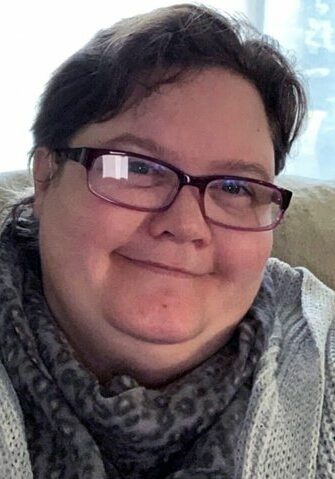Rise partners with SSA and Westat to study benefits of additional supports
May 21, 2020

Despite having dealt with numerous significant health issues since being diagnosed with severe hearing loss at age three, Madonna Wagner was motivated to work instead of applying for Social Security Disability benefits.
A medical assistant who worked primarily in pediatric and geriatric clinics for most of her career, the last few years have been especially challenging. Madonna has confronted with one debilitating condition after another, including hearing loss, osteoarthritis, migraines, and joint replacements.
Separately, she says her health issues wouldn’t necessarily keep her from working, but together, they are overwhelming. And when she started having seizures, working as a medical assistant was no longer possible.
In her early 40s, Madonna decided to apply for Supplemental Security Income (SSI) benefits, and was surprised to be turned down. Soon after, she was contacted to be part of a special project for people who were denied SSI benefits, but may be still interested in working.
Madonna was referred to Rise for services in July 2018 and is one of 90 people enrolled in Rise’s three-year Supported Employed Demonstration (SED) project. Started in December 2017, the project is funded by the Social Security Administration (SSA) and is administered by Westat in Rockville, Md.
The project provides Individual Placement and Support (IPS) services from an employment consultant with additional support from a nurse care coordinator (NCC), and care managers, plus funds for a variety of resources. The goal is to see how providing these comprehensive and coordinated services impacts people’s need for Social Security Income.
Rise is one of thirty study sites in the United States, and the only one in Minnesota, participating in the SED project. Given it is a research project, those enrolled have been placed into three different study groups, with each group receiving a different level and range of support services. Each person served is entitled to three years of supports.
The SED team consists of:
* A nurse care coordinator (NCC) who assists people with their mental health care and primary care needs. Rise partnered with the Hennepin County Mental Health Center (HCMHC) to have diagnostic assessments done on everyone receiving services from the NCC.
* Three care managers who help connect people with primary care and mental health care, county benefits, housing supports and other community resources that might stabilize them enough to pursue and focus on employment.
* Three employment consultants who provide career planning, job placement, and employment supports.
Even with her numerous health challenges, Madonna’s spirit and determination have not diminished as she pursues a new career path. “I love to get my hands on something and learn new things,” she said.
SED Program Supervisor Nancee Magistad is currently providing Madonna with employment services during the pandemic.
Together, via Microsoft Teams, text, and email, the two are working on career planning, job development, resume and cover letter writing, and other employment support services customized to help re-ignite Madonna’s career. She receives care management services from Rise’s Sarah Crampton.
“It was hard to leave my medical assistance work,” said Madonna. “My grandparents, who raised me, were so proud when I graduated from Anoka Technical College, and gave me a customized stethoscope to fit over my hearing aids.
“My career planning has been tricky — my multiple health issues get in the way of different jobs. I’d like to find a job as a receptionist or admin support person.”
Her seasonal job as a receptionist in a tax firm ended in early May at the end of tax preparation season.
Madonna and her husband Troy live in Fridley and have three grown children. They enjoy playing board games, watching movies from their extensive DVD collection, and spoiling their two dogs.
“The SSA funds available for this project have been generous as they realize that when people have their basic needs met, they’re better equipped to find and maintain work,” said Nancee.
“People have received funds for a wide range of support needs, including housing applications and rent, car repairs, temporary hotel stays during emergent situations, food resources, bus and gas cards, occupational training, and work clothing and shoes.”
“Rise has a track record providing IPS services and we have been involved in other SSA research studies through Westat,” said Program Manager Anne Mornes. “We are excited to be part of this important research project which will have extensive impact on how SSA services are provided to maximize people’s potential.”
“Everyone at Rise, especially Nancee and Sarah, have been so amazing and I really appreciate their help and support,” said Madonna. “Someone from Rise once told me, ‘Don’t say I can’t; say, how can I do it differently?’ That should be Rise’s motto!”
This article appears in the June 2020 issue of the Rise Reporter.